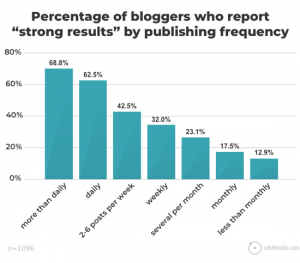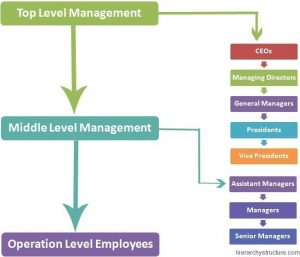
Building a company from scratch is a grueling endeavor that, if done right, can bring great rewards and a feeling of fulfillment. The same goes for being a husband and a father.
Balancing all three roles simultaneously is not for the faint of heart, and can seem damn near impossible at times.
Just ask James Oliver. The entrepreneur has been on quite the roller coaster ride over the past three years since founding WeMontage, his Neenah, WI-based company that lets customers upload their personal photos online and create a custom collage that gets printed on removable, polyester-based wallpaper.
Oliver has enjoyed the highs, from the birth of his twins, to getting accepted into the Gener8tor startup accelerator, to having his product featured on NBC’s “Today” show. And he has endured plenty of lows, from the scare of his twins’ premature births—just a day before the Gener8tor program began in January 2013—to scrambling to keep WeMontage afloat last year after “sales fell off a cliff,” the business ran out of cash, and investors were reluctant to pump more money into the venture.
But Oliver, who has chronicled his experiences on his lifestyle blog for parent entrepreneurs, isn’t one to quit when things get difficult. “I just believe that my purpose is to be a successful entrepreneur and to inspire others to do the same,” he says.
Oliver’s business has a long way to go before it can be deemed a success. WeMontage has only generated about $ 85,000 in sales so far, he says, as Oliver has struggled to attract customers, relying heavily on hustling for national media coverage to drive traffic to his site. He has a plan to grow sales, which partly involves implementing a customer referral program and optimizing the website for mobile devices.
With $ 410,000 raised from investors over two rounds of financing, the pressure is on to build a healthy business that can attract a buyer at some point. “I’m not delusional about what a successful business is,” he says. “I’m not there. I’m aspiring to that.”
But he still considers himself a successful entrepreneur, even though the business hasn’t taken off like he hoped. Many would-be entrepreneurs don’t make it past the idea phase and start selling an actual product. Most don’t get accepted into a tech accelerator. And many are unable to persuade investors to back them once, let alone twice, Oliver points out. “Despite all the challenges I’ve had … nothing can take that away from me,” he says.
Oliver’s willingness to tell the unvarnished truth about his experiences is refreshing in a world of startup founders who sometimes turn out to be braggadocios who are more talk than substance. “Everybody’s trying to pretend like they’re killing it. And most of them probably aren’t,” Oliver says.
Oliver shares lessons he’s learned in his adventures as a husband, father, and entrepreneur.
—Tips for entrepreneurs:
- Follow the numbers. If Oliver could have a redo, he “wouldn’t spend a single penny on Google ad words,” which turned out to be a waste of money for his business, he says. Meanwhile, he wishes he had optimized the mobile version of WeMontage’s collage editor sooner because half of his Web traffic has come through smartphones and tablets. Improvements to WeMontage’s mobile site should be finished by mid-March, he adds.
- Trust your instincts. Early on, Oliver planned to pursue international sales and focus on selling larger collages to customers, which generate more revenue for the same amount of effort on his part, he says. He moved away from those efforts for a while, but is now starting to refocus on both of those strategies. The jury is still out, but he thinks they could help his business.
- Build a network of supporters before you need their help. An entrepreneur will be hard-pressed to find success without help from the likes of investors, business partners, and mentors. But it’s not like flipping a switch; it’s important to build those relationships before asking for favors, Oliver says. “If you’re engaged with people and you’re authentic, when you need help, most likely people will be willing to help in any way they can,” he says. “The point is, don’t engage with people just because you want something.”
—Tricks for watching the kids while running a company:
Oliver’s twins, Zoe and Thaddeus, go to daycare two days a week, but on the other days, he watches them from home while running WeMontage. (His wife, Ayana, works in Kimberly-Clark’s marketing department.) That has forced him to get creative about when he gets work done, like when the kids are eating or sleeping. “When they’re taking a nap, that’s like game on for sure,” he says.
It also helps that he has twins. “That’s like a built-in play date,” he says. “I can sit and work at the same time while I watch them play” together.
It’s been difficult balancing those competing demands on his time, he says. But “the flipside of that is it’s been really cool to create this bond with them. They’re only going to be 2 once.”
—The secret to keeping stress at bay:
Some people exercise or go to church to collect their thoughts and rejuvenate themselves when feeling frazzled. Oliver meditates.
“Meditation is the only thing that keeps me centered, helps me manage and avoid stress and anxiety and worry,” Oliver says. “When I don’t meditate regularly, I can feel the anxiety churning in my belly. When I feel that, I’ve got to go sit down, just for 15 minutes, and it makes all the difference in the world to me.”
Last year, Oliver says he was constantly on edge, which wasn’t good for his relationships or his health. He recalled a night where he went to bed frustrated and upset because WeMontage was burning through cash, and he was struggling to raise more money from investors. “I woke up the next day with terrible back spasms,” he says. “I did that. My brain did that. That was from stress, anxiety, and fear.”
Meditation helps him relax and remember to focus on taking care of the things that he can control, and try not to worry about everything that he can’t, he says. “People need to find what works for them.”
(307)










